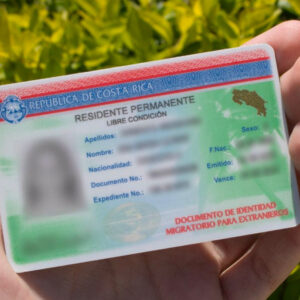Can My Parents Get Residency in Costa Rica? We Explain

Costa Rica has become a haven for individuals and families seeking a better quality of life, with its lush landscapes, pleasant climate, and vibrant culture making it an attractive destination. Thousands of people are drawn to this Central American country every year.
For those with family ties to the region, the question often arises: Can my parents get residency in Costa Rica The country offers various pathways to residency, including options based on family connections. Understanding the residency process is crucial for parents planning to join their children or family members in Costa Rica.
We will explore the different residency options available, addressing the common question and providing insights into the Costa Rica immigration system.
Residency Options for Parents in Costa Rica

For parents looking to reside in Costa Rica, there are several residency options available, each with its own requirements. Costa Rica offers a variety of residency options to suit the needs and circumstances of applicants.
Permanent Residency for Parents of Costa Rican Children
Permanent residency as a parent of a Costa Rican child is a permanent category that allows legal work in Costa Rica. The main requirement is a birth certificate proving the parental relationship. Unlike other temporary residencies, parents don't have to wait three years to change to permanent status. For this type of residency, all applicants are principal applicants, not dependents.
Temporary Residency Options
For parents who don't have Costa Rican children, temporary residency options are available, including the rentista program for those with stable income and the inversionista program for investors. Each of these options has distinct requirements and benefits.
Can My Parents Get Residency in Costa Rica? Eligibility Requirements
When considering residency in Costa Rica for your parents, understanding the eligibility requirements is crucial. The process involves several key factors, including the relationship between the parent and their Costa Rican child, financial stability, and legal considerations.
Age and Relationship Considerations
The relationship between the applicant and their Costa Rican child is a critical factor in determining eligibility for residency. The child's birth certificate, registered with the Costa Rican Civil Registry, serves as primary evidence of this relationship. For parents of adult children, those over 25 years old may be included in the application under certain circumstances. It's essential to understand how age considerations impact the application process.
Financial Requirements
While specific financial requirements for parent residency are not explicitly stated, other categories like the Rentista program require a minimum monthly income of $3,000 USD, and the Inversionista Program requires a minimum investment of $150,000 USD. Understanding these financial thresholds can provide insight into the overall financial stability expected from applicants. Demonstrating financial stability is crucial for a successful residency application.
Additionally, applicants must demonstrate they have no criminal record, as serious crimes can lead to application rejection on security grounds. The immigration department retains full discretion to approve or reject applications based on security concerns, even when all other requirements are met.
Required Documents for Parent Residency Applications

Gathering the necessary documents is a critical step for parents applying for residency in Costa Rica. To ensure a smooth application process, it's essential to understand the specific documents required.
Birth Certificates and Legal Connection Documentation
Parents must provide a birth certificate duly apostilled or legalized, along with an official Spanish translation that also bears an apostille or legalization. Additionally, a birth certificate from the Costa Rican public registry is required to prove the bond with the minor.
Criminal Background Checks
Applicants over 18 must submit a criminal background report issued within the last six months, duly apostilled or legalized, along with an official Spanish translation. This step is crucial as serious crimes can lead to application rejection due to security concerns.
Document Authentication and Apostille
All foreign documents must be authenticated through apostille or legalization to be valid in Costa Rica. We recommend verifying the specific requirements for each document to avoid delays. For a comprehensive guide on navigating the residency process, including finding legal assistance, visit Jaros CR.
The Application Process Step by Step

Navigating the residency application process in Costa Rica can be complex, but breaking it down into manageable steps can simplify the journey. We will guide you through the entire process, from gathering the necessary documents to receiving your DIMEX card.
Document Preparation Timeline
Gathering required documents can take around 2-3 months. This timeframe allows for the collection and authentication of documents from various countries, a process that requires careful planning. Ensuring that all documents are correctly prepared is crucial for a smooth application process.
Submission Procedure
The application is submitted to the General Directorate of Migration and Immigration (DGME). Applicants should be prepared to submit their application and wait for the review process to begin. For more information on the residency process, you can visit our guide on Costa Rica residency.
Application Review Period
The application review period generally takes 9-12 months, although the DGME aims to process applications within 90 days. During this time, applicants can legally remain in Costa Rica with a temporary status, sometimes referred to as a "golden ticket." Understanding the review process and what to expect can help applicants prepare for potential delays.
Benefits of Costa Rican Residency for Parents
The benefits of Costa Rican residency for parents are multifaceted and significant. By obtaining residency, parents can enjoy a range of advantages that enhance their quality of life and facilitate their integration into Costa Rican society.
Work and Business Opportunities
One of the most significant benefits of residency is the authorization to work legally in Costa Rica without needing additional permits. This opens up business opportunities, allowing parents to contribute to the economy and support themselves. For more information on the process of maintaining residency, including exiting and re-entering Costa Rica, visit this resource.
Access to Healthcare
Residency provides access to Costa Rica's universal healthcare system, known as CAJA. This comprehensive medical coverage ensures that families' health needs are met at a fraction of the cost compared to many other countries.
Family Reunification
The parent residency program promotes family reunification, allowing parents to live with their Costa Rican children and be actively involved in their upbringing and education. This not only strengthens family bonds but also allows parents to participate fully in their children's lives.
Costs and Timeline Expectations
For parents seeking residency in Costa Rica, it's essential to grasp the associated costs and expected processing time. The financial aspects include government fees, document authentication, and potentially legal assistance.
Government Fees and Associated Costs
The government fees for Costa Rica residency applications include application filing fees, document processing fees, and DIMEX card issuance fees. Additional costs may include document authentication (apostille) fees, official translation services, and legal assistance if needed.
Document extension fees are $100 USD per extension, which may be necessary if the application review extends beyond document validity periods. Understanding these costs helps parents budget appropriately for their residency application.
Realistic Timeline from Application to Approval
The entire process from document collection to approval typically takes 11-15 months. This timeline breaks down into 2-3 months for document gathering and 9-12 months for application review.
Factors that can influence this timeline include application completeness, immigration office workload, and potential requests for additional information. Being prepared and understanding these factors can help manage expectations.
Conclusion
Ultimately, the Costa Rican residency application process for parents offers a promising opportunity for family reunification. We've explored the various pathways available through the Costa Rican immigration system, including permanent residency for parents of Costa Rican children and other options for parents without Costa Rican children.
The application process requires meticulous document preparation, including birth certificates and criminal background checks, all properly authenticated for use in Costa Rica. While the residency application timeline can be lengthy, the benefits of legal residency for parents are substantial, including work authorization, healthcare access, and family reunification.
For expats in Costa Rica with parents abroad, the parent residency program offers a valuable opportunity to reunite families. We recommend consulting with immigration experts to navigate the process efficiently. For personalized assistance, contact us at info@jaroscr.com or +(506)7182-8969.


